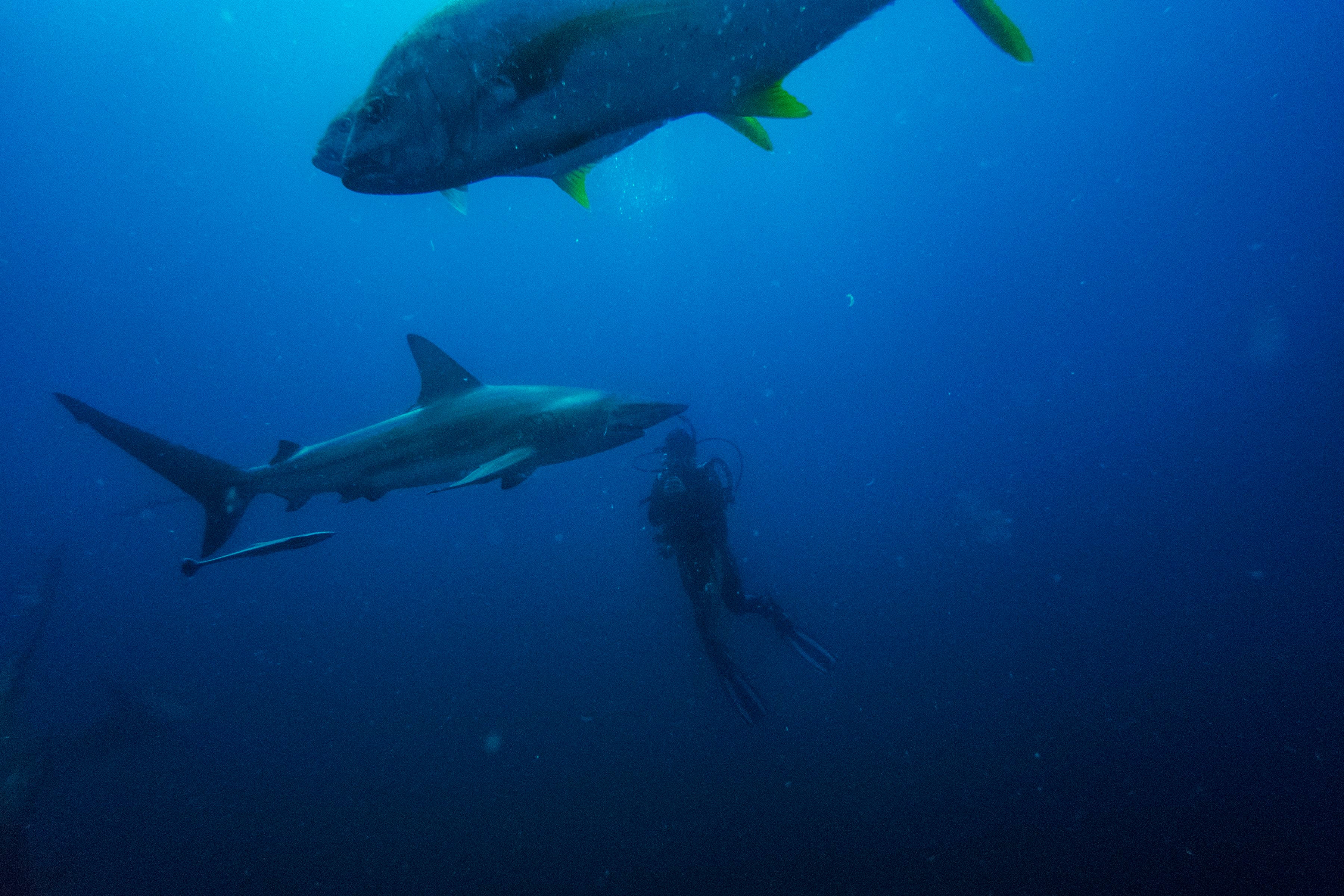Ancient shark-like fish appeared millions of years earlier than thought
The species has been given the name Qianodus duplicis

The first sighting of a shark-like jawed fish might have happened several million years earlier than was previously thought, new evidence suggests.
A collection of fossil teeth were analysed by a team of researchers at the University of Birmingham, the Institute of Vertebrate Palaeontology and Palaeoanthropology, part of the Chinese Academy of Sciences and Qujing Normal University, China.
It turned out that the teeth came from a completely new species, suggesting that the creatures emerged on earth around 440 million years ago - 15 million years earlier than previously thought.
Before this, the earliest jawed fish to be identified was from a species that appeared 424 million years ago.
Dr Ivan Sansom, lecturer at the University of Birmingham and a co-author on the paper, explained the significance of the finding: “Until this point, we’ve picked up hints from fossil scales that the evolution of jawed fish occurred much earlier in the fossil record, but have not uncovered anything definite in the form of fossil teeth or fin spines.”
A collection of fossilised teeth - around 20 of which came from the same species - were found on the site of a new road being dug in Guizhou Province, China.
A number of scales were also uncovered.
From the arrangement and shape of the teeth, researchers were able to establish that they came from a fish with an arched jaw margin, with offset tooth rows, similar to those found in sharks.
The new species has been called Qianodus duplicis – Qian is an ancient name for Guizhou Province, and odus comes from the Greek for tooth, and duplicis, or double, making reference to the fact that the rows of teeth are paired.
In a separate paper the team also found fossil elements that relate to fin spines.
Dr Plamen Andreev, who was lead author on both papers, said: “The early so-called ‘spiny sharks’ had these features on all of their fins, but the examples that we have found belong to a much earlier period.
“These are the first creatures that we would recognise today as fish-like, evolving from creatures often referred to as ‘clams with tails’, from earlier in the Ordovician period.”
Cartilaginous fish - including sharks - separated off at some point from bony fish - from which humans eventually evolved.
How and when this took place is as yet unknown. There have been suggestions that it could have been during the Ordovician period where only hints in the fossil record have been found.
Additional reporting by PA.



Join our commenting forum
Join thought-provoking conversations, follow other Independent readers and see their replies
Comments